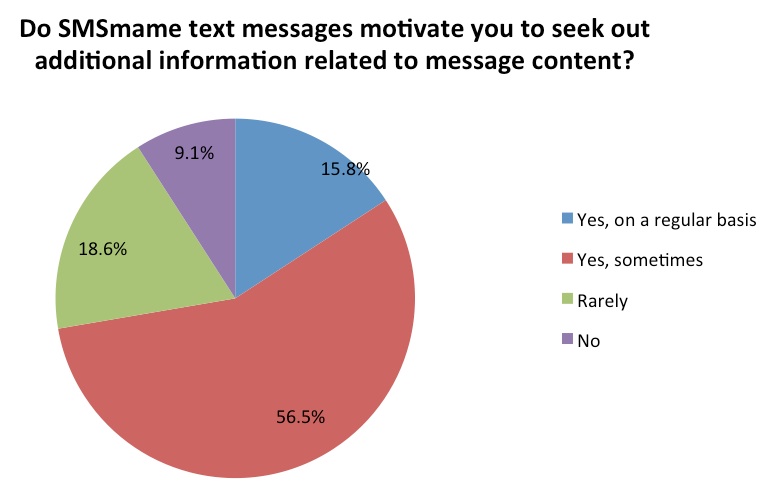 Two years ago, the Russian version of Voxiva's Text4baby text message service for new and expectant mothers, called SMSMame, launched nationwide. Now the program has released survey data from 751 users of the service interviewed either in person or via an online survey. About 1oo of the women surveyed were pregnant at the time, and the others had children under one year of age.
Two years ago, the Russian version of Voxiva's Text4baby text message service for new and expectant mothers, called SMSMame, launched nationwide. Now the program has released survey data from 751 users of the service interviewed either in person or via an online survey. About 1oo of the women surveyed were pregnant at the time, and the others had children under one year of age.
Text4baby was brought to Russia by prominent mobile health investor Esther Dyson back in 2010 and the Russian program is run by Russia's Health and Development Foundation.
Seventy-six percent of the women surveyed said they were either highly satisfied (42 percent) or satisfied (34 percent) with the service. In addition, the survey found that nearly a quarter of participants had used the service for more than a year and another 28 percent had used it for nine to 12 months.
The survey also looked to assess the efficacy of the program by looking for changes in behavior as a result of the program. They found 91 percent of participants saved texts for future reference, and 62 percent did so regularly. Ninety percent said that they followed program text messages' advice in their daily life either sometimes or on a regular basis. A total of 72 percent recommended the service to friends and acquaintances with 42 percent doing so more than once. Seventy-three percent sometimes or regularly searched for additional info based on the messages they received.
Women were also asked about specific healthy actions taken during pregnancy. For instance, 71 percent reported taking vitamins daily and all women reported exercising at least once a week, except those for whom exercise was not recommended by their doctor. Almost a quarter said they quit smoking while pregnant or shortly after giving birth.
However, only 25 percent were motivated to talk to their doctor about the messages, and of those only 3 percent reported doing so on a regular basis.
The demographics of the women in the study were somewhat surprising -- 67 percent had a university degree or higher. Additionally, 84 percent were married, and another 10 percent were unmarried but had a partner. Most women using the service (71 percent) were expecting their first child.
Finally, the Health and Development Foundation asked women some questions about how the program could be improved. Women found the topics of newborn health, key development stages, and vaccination most important, although almost all topics were of interest.
"Survey respondents would also prefer to receive text messages more frequently," the group wrote in a press release. "A third (31.6 percent) of respondents are satisfied with the current rate of one to two messages per week. However, a majority would prefer to receive more messages; among that group, 31.1 percent would like to receive three to four messages weekly. The remaining third would like to receive five or more messages per week. This desire for greater frequency of text messages is yet another positive sign of the value of the service for pregnant women and new mothers."

















